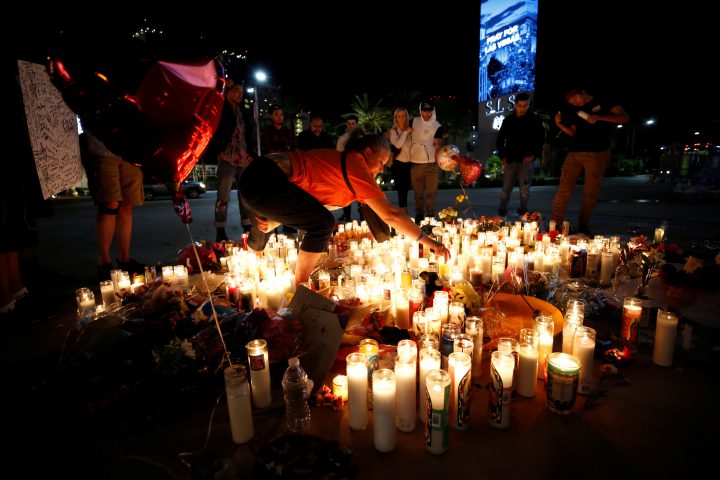I’ve been in places where the misery felt as thick and heavy as a wet blanket.

Actually, fairly recently.
A couple of weeks ago, I was in the Florida Keys walking through the ruins of a community. Some were just returning home to see they’d lost everything. Others were combing through debris trying to save possessions. And then there were the firefighters going door to door looking for bodies.
All of that, in about 50 square metres. It can be overwhelming.
This week, I’m covering the trial of three men accused in the 2013 Lac Megantic train derailment. Forty-seven people were killed when an oil train derailed and exploded right in the middle of a small town. When it happened, I got the call at 5 a.m., and left home within minutes. I was there for close to two weeks.
As I sit in a hotel room getting ready for court, I’m watching coverage out of Las Vegas. Fifty-nine people dead and more than 500 injured.
Journalists sometimes joke about being able to “turn it off” — shut down our emotions to get through something.
Yeah. We don’t.
Maybe we tell ourselves we do. It makes it easier to shake off that blanket if you pretend it’s not there. But here’s the thing about journalism and covering tragedy. You have to feel it.
There are two reasons, and I’d argue they’re equally important.
First, we don’t just show up to lay out facts. If that was the job, you wouldn’t even have to be on the ground. You could just make a couple of calls to officials and bang out some notes.
What we try to do is cover the impact on people. It’s completely different. To do that, you have to understand what people are going through. You have to understand their emotions. In fact, you have to let it in.
There are dried tears on my keyboard. I’ll be sitting there typing and trying to convey the emotions I’ve seen, and suddenly realize my eyes are welling up.
It’s not fun. It’s like swimming in sadness.
But if you want to put that emotion into what you’re writing, you have to open your heart to it. To get the emotions to come out of your fingers into a computer, first, you have to let them in.
The other reason we open that door to empathy is respect.
In the last three weeks, I’ve interviewed people who’ve lost their homes, people who were desperate to find out if their homes had been destroyed, people who lost children, and people who came within inches of losing their lives.
Yeah, all of that in three weeks. It’s almost ridiculous.
In every case, I’ve treated the person the way I’d want to be treated in their situation, and every long handshake or hug has been sincere.
When someone opens up and talks to you about what they’re going through, often literally at the worst time in their life, you don’t shut down. You let it in.
On Tuesday morning, I think Chris Cuomo on CNN almost lost it. He was interviewing a survivor from the Las Vegas shooting and had trouble controlling his emotions. It could not have been more respectful and it’s why I started banging this out on my laptop.
Been there, Chris. You handled it perfectly.
Mike Armstrong is a reporter for Global National based in Montreal









Comments